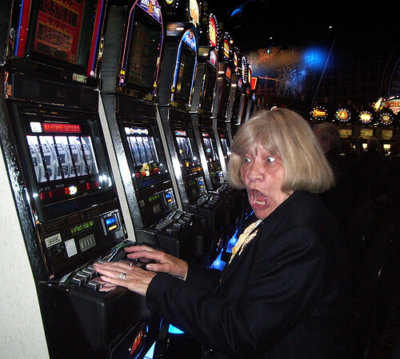Compulsive Disorder Gambling
By Joanna Franklin, MS NCGC II
Some drugs can have a rare side effect that results in compulsive behaviors, including gambling, in some people. A physical exam may identify problems with your health that are sometimes associated with compulsive gambling. Do a psychiatric assessment. Synonyms: Compulsive or Pathological Gambling, Gambling Disorder. Gambling Addiction Signs. Some gambling addiction signs are very much like other types of addiction. On the other hand, most of them are very specific: Keeping it a secret; Money issues; Inability to stop—The person who is a gambler is aware that their behavior is bad. Dec 04, 2019 Compulsive gambling can lead to serious problems in your life, such as broken relationships, increased debt, and even theft. Only a mental health professional can diagnose a gambling problem, but you can educate yourself about the diagnostic process and warning signs.
What is a co-occuring disorder?
Co-occurring disorders is a term used to mean more than one problem at the same time. For pathological gamblers, this usually means a depression, anxiety, or substance-abuse disorder. Post-traumatic stress, attention-deficit disorders, personality disorders, and others could occur in addition to a gambling or addiction disorder.

What causes co-occurring disorders?
Co-occurring disorders may have their roots in early childhood, such as attention disorders. Or they may be the result of physical illness or emotional trauma, substance abuse or dependence, medication reactions, and even menopause.
Simultaneous treatment is required for co-occuring disorders
Someone with a bipolar disorder may also have a gambling problem or substance-abuse issue. Assessment by a mental health professional is very important to be sure that all co-occurring disorders are being treated. It is said that if we are not treating them all, we are not effectively treating any. This a very important part of treatment to be sure no undiagnosed or untreated disorder remains and threatens the recovery from the identified disorder.
Compulsive Disorder Gambling Definition
I cannot count how many of my gambling clients had been in treatment for a substance-abuse problem but their gambling disorder went undiagnosed—and as the gambling got worse the client returned to substance abuse to cope with the stress and desperation caused by the gambling problem.
Diagnosing problem and pathological gambling

Problem and pathological gambling seem to come in many forms. The more we learn about it the more we see. It is unfair to the complicated human being to simply say yes, you have it, or no, you don’t.
In fact, part of a good assessment is a counselor who can paint a picture of the client using the accurate terms and descriptions, to be able to screen for the many factors that seem to influence the client. We really don’t know why some folks start early and others later, why some are severe while others stay mild. Some have a clearly progressive gambling disorder and others do not. The truth is…we just don’t know.
But we know more today than ever before and we are continuing to learn. More scientists are studying gamblers and more and more research is helping us understand how this disorder seems to work and how we can be more helpful to those in need of care. The search goes on to better understand and to reach out the all-important helping hand no matter when the gambling started and no matter what else one may need to recover from. Our job is to get you what you need as best we can.